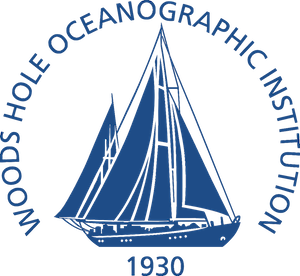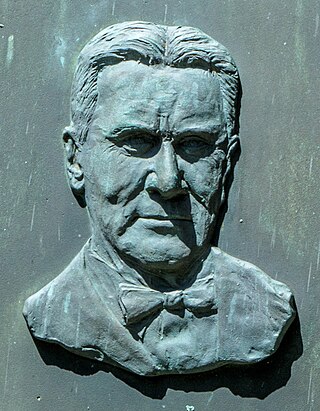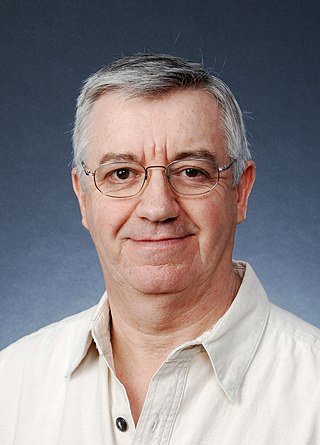Related Research Articles

The Woods Hole Oceanographic Institution is a private, nonprofit research and higher education facility dedicated to the study of marine science and engineering.

Ramon Margalef i López was a Spanish biologist and ecologist. He was Emeritus Professor of Ecology at the Faculty of Biology of the University of Barcelona. Margalef, one of the most prominent scientists that Spain has produced, worked at the Institute of Applied Biology (1946–1951), and at the Fisheries Research Institute, which he directed during 1966-1967. He created the Department of Ecology of the University of Barcelona, from where he trained a huge number of ecologists, limnologists and oceanographers. In 1967 he became Spain's first professor of ecology.

Alfred Clarence Redfield was an American oceanographer known for having discovered the Redfield ratio, which describes the ratio between nutrients in plankton and ocean water. He was a professor of physiology at Harvard University and one of the original staff of the Woods Hole Oceanographic Institution upon its founding in 1930.
The Association for the Sciences of Limnology and Oceanography (ASLO), formerly known as the Limnological Society of America and the American Society of Limnology and Oceanography, is a scientific society established in 1936 with the goal of advancing the sciences of limnology and oceanography. With approximately 4,000 members in nearly 60 different countries, ASLO is the largest scientific society, worldwide, devoted to either limnology or oceanography or both.
Gordon Arthur Riley was an American biological oceanographer most associated with his studies of the dynamics of plankton ecosystems.
The G. Evelyn Hutchinson Award is an award granted annually by the Association for the Sciences of Limnology and Oceanography to a mid-career scientist for work accomplished during the preceding 5–10 years for excellence in any aspect of limnology or oceanography. The award is named in honor of the ecologist and limnologist G. Evelyn Hutchinson. Hutchinson requested that recipients of the award have made considerable contributions to knowledge, and that their future work promise a continuing legacy of scientific excellence.
Kenneth H. Mann received the first Lifetime Achievement Award of the American Society of Limnology and Oceanography in 1994.
Clifford Hiley Mortimer was a 20th-century British zoologist and expert in hydrodynamics. He was the recipient of the 1995 A.C. Redfield Lifetime Achievement Award.
John J. Gilbert was the 2003 A.C. Redfield Lifetime Achievement Award recipient.
Alice Alldredge is an American oceanographer and marine biologist who studies marine snow, carbon cycling, microbes and plankton in the ecology of the ocean. She has conducted research in the open sea, at her laboratory at the University of California, Santa Barbara as well as in collaboration with the Long Term Ecological Research Network (LTER) at the Mo'orea Coral Reef Long Term Ecological Research Site in Mo'orea, French Polynesia. According to the annual ISI Web of Knowledge list published by Thomson Reuters, she has been one of the most cited scientific researchers since 2003.

Alan Reece Longhurst is a British-born Canadian oceanographer who invented the Longhurst-Hardy Plankton Recorder, and is widely known for his contributions to the primary scientific literature, together with his numerous monographs, most notably the "Ecological Geography of the Sea". He led an effort that produced the first estimate of global primary production in the oceans using satellite imagery, and also quantified vertical carbon flux through the planktonic ecosystem via the biological pump. More recently, he has offered a number of critical reviews of several aspects of fishery management science and climate change science.
Jody W. Deming is an American oceanographer. She is a professor of Oceanography and a marine microbiologist at the University of Washington (UW). Her research interests include studies of cold adapted microbes in their relation to astrobiology, biotechnology, and bioremediation. She is known for her extensive field work, being involved in over 50 nautical research expeditions. Deming is also the cofounder of the UW Astrobiology Extremophile Laboratory.
Mark D. Ohman is an American Biological Oceanographer. He is Distinguished Professor of the Graduate Division at the Scripps Institution of Oceanography, University of California, San Diego. He is Director and Lead Principal Investigator of the California Current Ecosystem Long-Term Ecological Research site, supported by the U.S. National Science Foundation.

Nancy Helen Marcus was an American biologist and oceanographer. During her graduate studies, Marcus became known as an expert on copepod ecology and evolutionary biology. She began her career as a postdoctoral fellow at the Woods Hole Oceanographic Institution where she studied copepod dormancy and its implications for marine aquaculture. She continued her field research as a professor of oceanography and later as the director of the Florida State University Marine Laboratory (FSU). During this time Marcus was elected as a Fellow of the Association for Women in Science and the American Association for the Advancement of Science and served as the president of the Association for the Sciences of Limnology and Oceanography. As the president, she led efforts in increase education activities and to increase the endowment fund.
Lisa A. Levin is a Distinguished Professor of biological oceanography and marine ecology at the Scripps Institution of Oceanography. She holds the Elizabeth Hamman and Morgan Dene Oliver Chair in Marine Biodiversity and Conservation Science. She studies coastal and deep-sea ecosystems and is a Fellow of the American Association for the Advancement of Science.
William Li is a Canadian biological oceanographer who did research on marine picoplankton, marine macroecology, ocean surveys of plankton from measurements of flow cytometry, and detection of multi-annual ecological change in marine phytoplankton.
Sybil P. Seitzinger is an oceanographer and climate scientist at the Pacific Institute for Climate Solutions. She is known for her research into climate change and elemental cycling, especially nitrogen biogeochemistry.

Maciej Gliwicz is a Polish biologist, evolutionist and professor at the University of Warsaw who specializes in the field of hydrobiology.

Trevor Charles Platt was a British and Canadian biological oceanographer who was distinguished for his fundamental contributions to quantifying primary production by phytoplankton at various scales of space and time in the ocean.
Susanne Menden-Deuer is an oceanographer and marine scientist known for her work on marine food webs, including their structure and function. As of 2022 she is president-elect of the Association for the Sciences of Limnology and Oceanography.
References
- ↑ "Karl Banse". University of Washington . Retrieved May 26, 2015.
- ↑ "Karl Banse". University of Washington. Archived from the original on December 11, 2018. Retrieved February 5, 2021.
- ↑ Banse, K. (2007) Do we live in a largely top-down regulated world? Journal of Biosciences 32: 791-796.
- ↑ Banse, Karl (2013). "Reflections About Chance in My Career, and on the Top-Down Regulated World". Annual Review of Marine Science . Annual Reviews. 5: 1–19. doi: 10.1146/annurev-marine-121211-172359 . PMID 22881352.
- ↑ "A.C. Redfield Lifetime Achievement Award". Association for the Sciences of Limnology and Oceanography. Retrieved February 4, 2020.